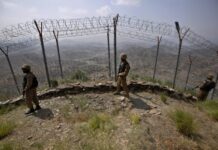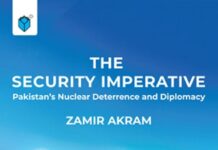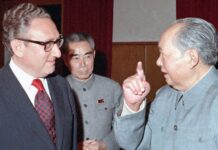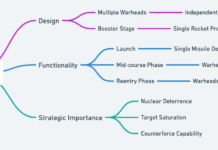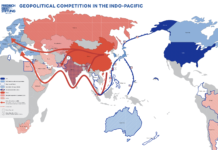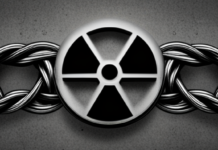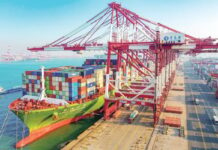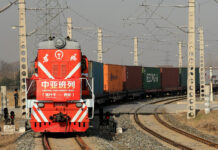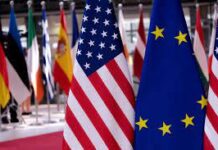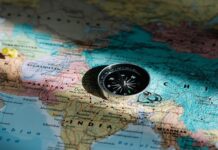Javed Hassan
While national security of Pakistan is inextricably linked to its military preparedness, it has other dimensions that relate more to its economic health than keeping it secure in the traditional context. Throughout history, the strength of nations is founded on the rule of law, stable government, social, political, and economic institutions. Such institutional infrastructure is the bedrock upon which the sustainable growth of nations depends, which in turn enables them to project their rightful place among the comity of nations.
In a democracy that is globally connected and technology dependent, a knowledgeable and skilled citizenry are vital ingredients for national cohesion and development. It requires investments in education, health, and innovation and technological advancement. Other critically important components include energy, food, and transport. These vital building blocks of economic security not only establish a country’s capacity to ensure the wellbeing of its populace, but also have bearing on its international relations.
National security both in terms of how we define our core values and our standing among countries is inevitably compromised in the absence of a robust economy. Generation of jobs for the citizenry and investment opportunities for businesses create wealth, and the resultant collection of tax revenues are necessary to support the many organs of the state, including those related to defense.
It is therefore imperative that within the complex system of national security, the economy as its subsystem is clearly enunciated. The diverse range of issues that provide a systemic view of the economic element — the role of government, endowment of capabilities (a combination of physical infrastructure, institutions, systems, skills and social networks), and international connectivity — need to be understood in order to be leveraged for national power.
Role of government
Since the collapse of the Soviet-style command economy, there has been almost universal adoption, including in China, of market-based economic systems. National security must therefore include consideration of how to ensure the functioning of an efficient market-based economy with widespread competition and increasing level of free trade within regional trading blocs, and globally in general. This has to be predicated on regulators enabling a level playing field for all participants, both incumbent and new entrants, as well as domestic and international investors.
Unfortunately, the Pakistani state’s footprint has too often presented itself in economic activities without necessarily increasing productivity or affording consumers greater choice. Direct state intervention in key sectors of the economy through sclerotic regulations and state-owned enterprises (SOEs) distort prices and prevent the optimal allocation of resources for the general wellbeing of the people and growth of businesses.
In the industrial sector, government’s tax and trade policies have negatively impacted productivity and exports growth. Unlike in other fast-growing developing economies, free trade and global integration are commonly portrayed in Pakistan as acting against the interests of local industry and jobs, and are therefore seen as harmful to the economy.
In the agriculture sector, import restrictions and direct and indirect subsidies, have all contributed to anticompetitive practices and consumer interests being adversely affected. Resultant price distortions in food commodity markets has perversely incentivized unsustainable and suboptimal usage of their holdings, which in turn has meant sluggish improvement in productivity.
There needs to be a realization among policy makers that the state should refrain from intervening in market mechanisms, and in effect trying to coordinate the choices of millions of people to optimize their overall pattern of activities. These objectives are better achieved by well-regulated and efficient free markets.
Endowment of Capabilities
While the government should refrain from directly intervening in economic activity, it has an important role to play in incrementally enhancing the endowment of capabilities that can help boost economic growth. It is observed that the wealth of nations is closely linked to their productive structures, defined as the variety of goods and services they can produce. This in turn depends on locally available capabilities at any point. Countries that can produce products requiring a relatively large number of capabilities have economies that are more adaptable than countries producing fewer complex products.
The virtuous cycle created through an evolution of capabilities required for current products enables branching out into producing complementary new products to spur future enterprise. The relationship between national income and the level of sophistication of economies has been mapped out by Harvard’s Growth Lab, and on that basis, countries ranked on its Economic Complexity Index (ECI).
On 2018 data, ECI ranks Pakistan as the 99th most complex country. More alarmingly, over the last decade, Pakistan’s economy has become relatively less sophisticated, declining 20 places in ranking. India’s (42), Thailand’s (22), Vietnam’s (52), have improved 8, 9, and 11 places respectively. Pakistan’s worsening position reflects the fact that its diversification has been primarily in low value and low-tech products, while better performing countries have added more complex high value products.
In order to reverse this trend, Pakistan must not only build on its existing endowment of capabilities to produce a broader, increasingly more complex, set of goods and services, but also in parallel explore new pathways for moving into high-productivity, technology and knowledge-based activities. Investment in the building blocks for a more sophisticated economy by stakeholders across sectors will not only boost economic growth, but also help Pakistan make headway in convergence with developed countries. Integration and interdependencies with their economies is inevitably an important plank of strengthening diplomatic relationships.
International Connectivity
The economic growth of nation states is linked to their ability to exploit connectivity and interdependencies within strong regional blocks. Despite the reversal of Brexit, various forums such as the European Union (EU), Association of Southeast Asian Nations (ASEAN), United States-Mexico-Canada Agreement (USMCA), The Regional Comprehensive Economic Partnership (RCEP) as well as other regional treaties, serve not only to demonstrate the importance of trade liberalization in boosting economic activity, but also that of intense diplomatic efforts required in the regional and international arena to facilitate participation within these trading blocks, and beyond that.
Diplomatic initiatives, backed up by the ability to leverage the numerous economic opportunities the country affords, need to take advantage of its unique geostrategic edge to maximize the benefits of globalization. Its location allows it opportunities to facilitate trade between its surrounding countries by acting as a trade hub. It is particularly well suited to facilitate trade between large and resource rich markets of the Middle East, Central Asia and China.
China’s, Central Asia and Afghanistan’s importance to Pakistan’s international economic engagement matrix cannot be overemphasized. While the China Pakistan Economic Corridor (CPEC) has helped build an already strong strategic relationship between ‘Iron Brothers’, the enormous potential for economic development with the Central Asian region remains to be explored. An important component of all diplomatic interfacing is the outreach to seek to build on economic interdependencies with these countries.
These economies are undergoing an economic transformation. Pakistani firms and companies, with their unique technological and entrepreneurial know-how suited to low cost, low-technology environments, can partner with Central Asian countries by investing in new ventures in the region’s countries, and by helping them develop new export markets. As trade flows and traffic grows on these transit routes, new jobs in the logistics sector in areas such as warehousing, trucking and packaging would also be created in the Afghan economy.
Access to energy resources and relatively cheap labor would result in the development of labor-intensive export-oriented manufacturing geared towards western and other markets. Such an export-oriented strategy has the potential to take off and create a large number of jobs. The strengthening of regional trade will also cushion the economies of regional countries from global financial or other external shocks.
Pakistan needs to accelerate the steps being taken toward comprehensive trade reforms simultaneously and urgently, keeping in mind their interconnectedness, if it is to leverage its inherent strategic advantages, such as potential access to over a $2 trillion import market as a result of the CPEC as well as proximity to Central Asia and the Middle East; readily available raw materials for manufacturing items; and a large domestic market and human resource base.
Greater economic integration with the world markets, facilitated by internal reforms and aggressive diplomacy to facilitate market access, will enable the Pakistani industry to take advantage of the vast opportunities offered by the global marketplace. Investment and trade are intertwined, and any growth strategy should be driven by investment in manufacturing for international markets rather than primarily to satisfy domestic demand as has largely been the case for Pakistan. This will stimulate innovation and productivity gains among Pakistani manufacturers, making them competitive in the global market, and therefore, scale up and create jobs. All this will help translate Pakistan’s vision of economic diplomacy into a veritable reality that will ensconce the country in a geoeconomics-led regional and global order.
Javed Hassan has worked in senior executive positions both in the profit and non-profit sector in Pakistan and internationally. He is an investment banker by training. He tweets: @javedhassan.



